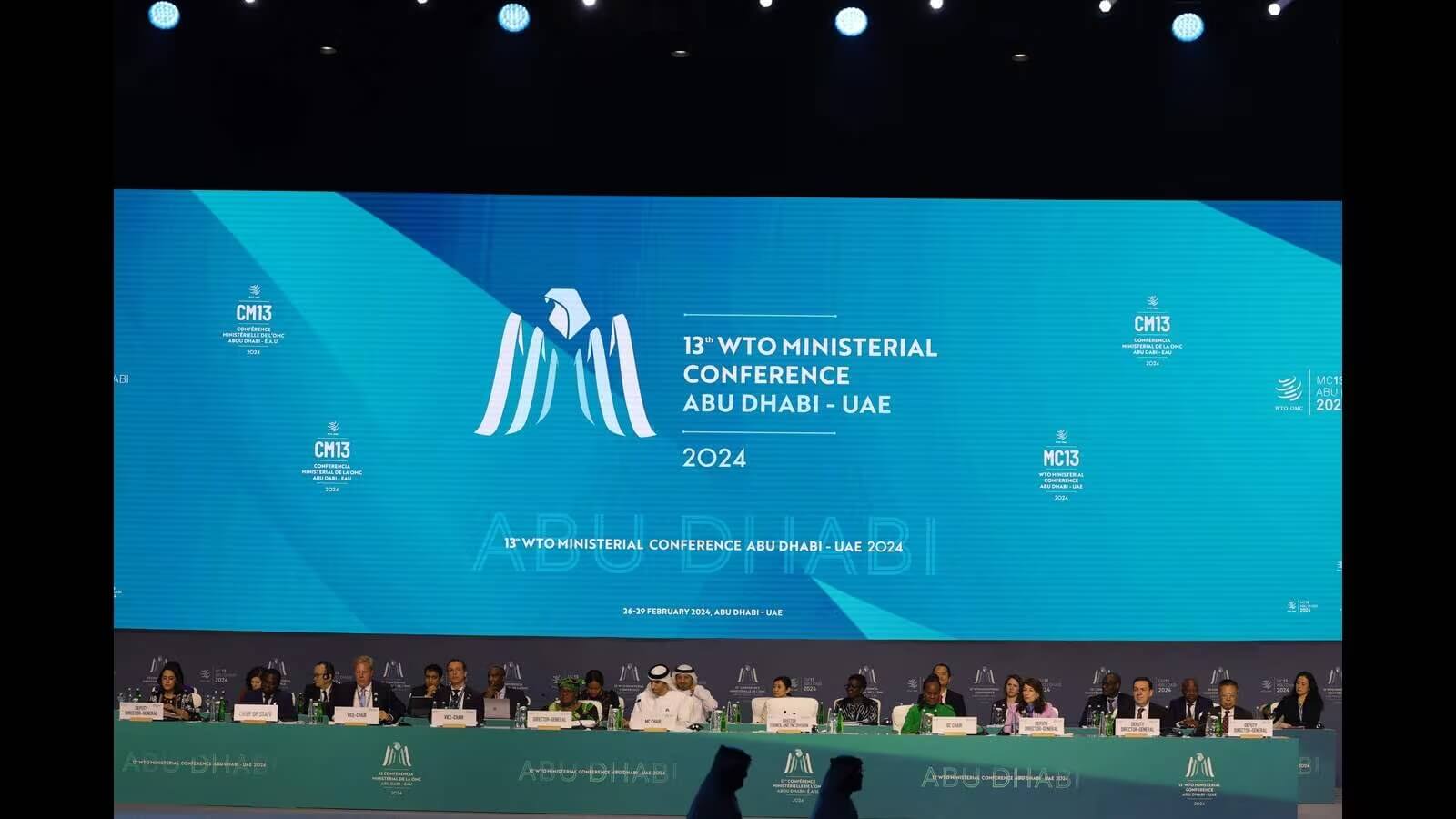At the 13th Ministerial Conference of the World Trade Organization (WTO) on Monday, India voiced concerns regarding the increasing use of trade protectionist unilateral measures justified in the guise of environmental protection.
The conference commenced in Abu Dhabi, with the Indian delegation being led by Commerce Secretary Sunil Barthwal on the first day.
Help Developing Countries Fight Constraints to Industrialisation
Two sessions were held at the conference — one on sustainable development and policy space for industrialisation and the other on trade and inclusion.
At the first session, India claimed that in order to handle their issues — some of which have gone unresolved for a long time — developing nations are looking for suitable policy space. India stated its firm belief that for emerging nations to overcome obstacles to their industrialisation, the current WTO agreements must be more flexible.
India opposes the fragmentation of multilateral trading system and inclusion of non-trade topics at WTO MC13
— PIB India (@PIB_India) February 26, 2024
India pushes for WTO backing for developing nations to overcome industrialization-era constraints
Read here: https://t.co/fbpMeRtVba
Further, New Delhi highlighted the need to “avoid fragmentation of the multilateral trading system” and the significance of staying focused as opposed to including non-trade concerns in the WTO agenda. The country also voiced concerns about the deliberate attempt to combine new issues of “Trade and Industrial policy” with long-standing development challenges such as policy space for industrial development.
Nonetheless, there was a laudable step in the right direction on the first day of the conference, as Comoros and Timor Leste became members of the international organization, which will celebrate 30 years since its founding next year. India has long been in favour of these accessions.
Address Matters of Inclusiveness at National Level
In the second session on trade and inclusion, “India cautioned members that mixing non-trade topics with WTO rules can lead to greater trade fragmentation.” It held that bringing issues like gender and micro, small, and medium enterprises (MSMEs) into the realm of WTO discussions was not practical as they were already being discussed in other relevant international organisations.
Positing that non-trade concerns could promote trade-distorting subsidies and non-trade obstacles, it further emphasised that matters such as inclusiveness are better addressed at the national level through targeted and contextual measures; they are not within the purview of international trade relations.
Additionally, India reaffirmed its steadfast support for multilateralism and the significance of upholding the rules-based global trading system. It also described a number of government initiatives aimed at increasing the participation of women and MSMEs, mainly through the use of digital public infrastructure, and underlined how certain economic sectors were experiencing economic transformation as a result of government concentration.
Farmers Oppose WTO, India Raises Concerns on Food Security
The current WTO session coincides with ongoing farmer protests in India. Farmer leaders have voiced concerns regarding India’s membership of the WTO and called upon the government to refrain from making any decisions that could negatively impact farmers’ interests and food security.
While Indian Commerce and Industry Minister Piyush Goyal was absent from the meeting, he urged the WTO to implement the long-promised permanent solution to public stockholding (PSH) for food security and an equitable agreement on fisheries subsidies.

